Low End Derrick
Veteran
Though all nature’s creatures have their own dignity, they also have a capacity for dim-wittedness, clumsiness and all-round foolishness. For every proud and noble hound, nose lifted to the breeze, there will be a gawky, graceless mutt scooting across the rug. For every majestic stallion thundering impressively over the sand, there is a cantankerous nag pinning its ears to its skull as it snakes its head over the stable door. And these might be the very same animals, just moments apart.
For as long as there have been cameras, people have shared funny animal pictures. From black-and-white snaps of chimps in suits and dogs with pipes, through home videos and Animals Do the Funniest Things in the noughties, to the present, when finalists from the annual Comedy Wildlife Photography Awards – well represented among this selection – routinely go viral, the appeal is evergreen. It bubbles up from the same well of comedy: a tension between an animal’s true nature and the human connotations they have unwittingly stumbled upon.
Perhaps these photos say more about our human whims. Anyone who shares their life with an animal knows the strange infusion of affection, pathos and humour that flavours our interactions with other species. Does a fish care that its teeth remind the viewer of a goofy cartoon character? It has no concept of it. Does a cat mind if its overhanging belly casts a similar silhouette to that of an old gangster? Not a bit. Funny animal photos are felt to be harmless yet retain a trace of the taboo: a conflict that stems from the knowledge that, as endearing and relatable as their behaviour may appear to be, we will never truly understand what’s going on in their minds.
If comedy grows from subverting an audience’s expectations, then the more human the animal’s pose, the better. As Jason Moore, this year’s winner of the Comedy Wildlife Photography Awards for his photo of a kangaroo appearing to play the guitar, said: “I will always look for opportunities to capture examples of anthropomorphism. This type of image is among the most successful in attracting and holding an audience’s attention.”
Our brains are programmed to enjoy bears waving from the beach, stressed out squirrels throwing shapes, and monkeys mugging for the camera. They remind us of ourselves – only sillier – and in so doing, remind us that life need not be entirely solemn.
Talk to the Fin, Jennifer Hadley, 2017
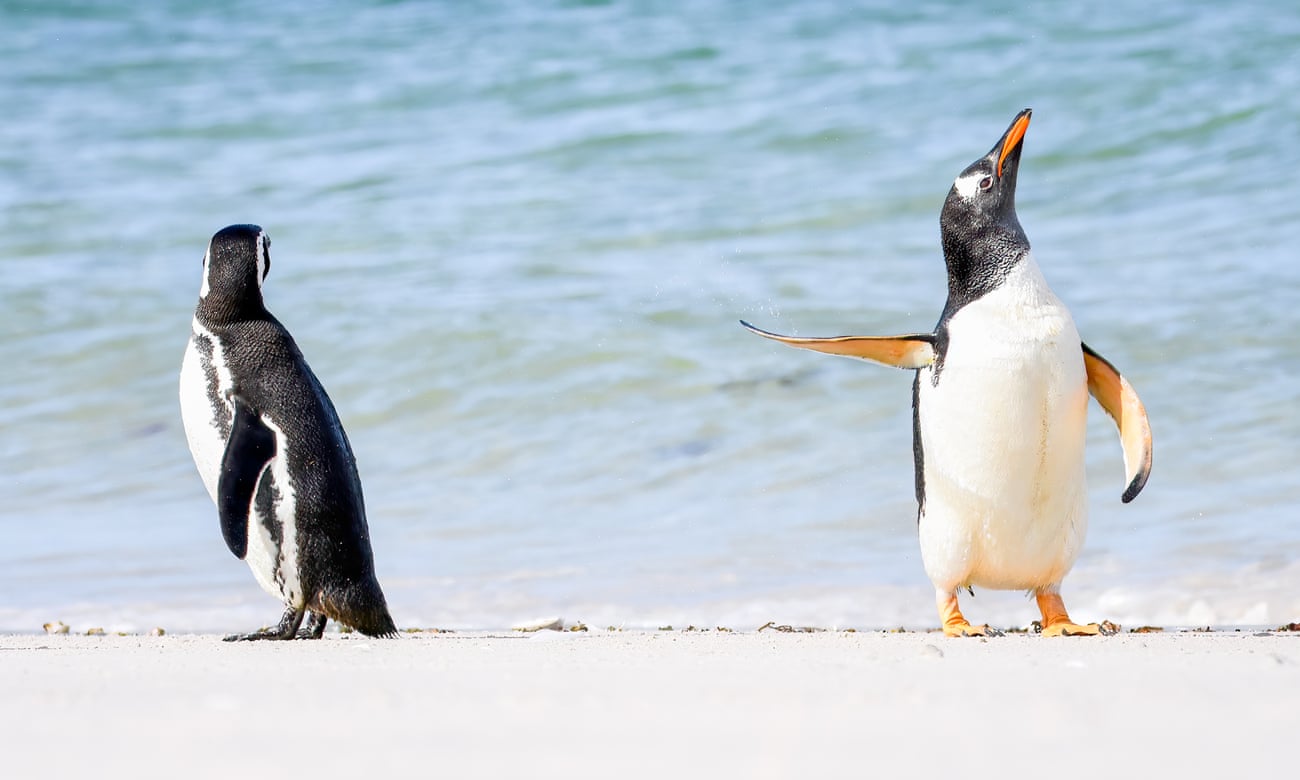
Weasel Hitching a Lift, Martin Le-May, 2015
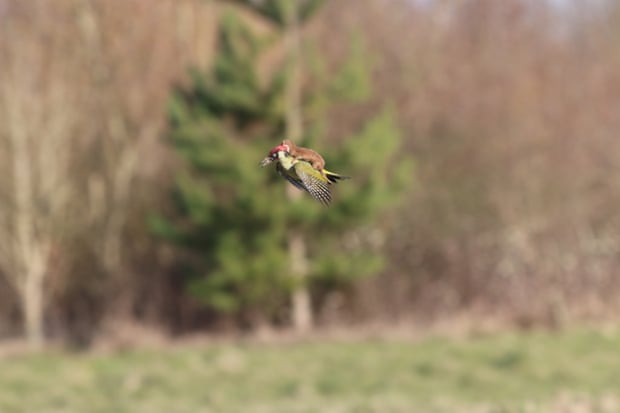
Buffalo Having a Bad Day, Tom Stables, 2016
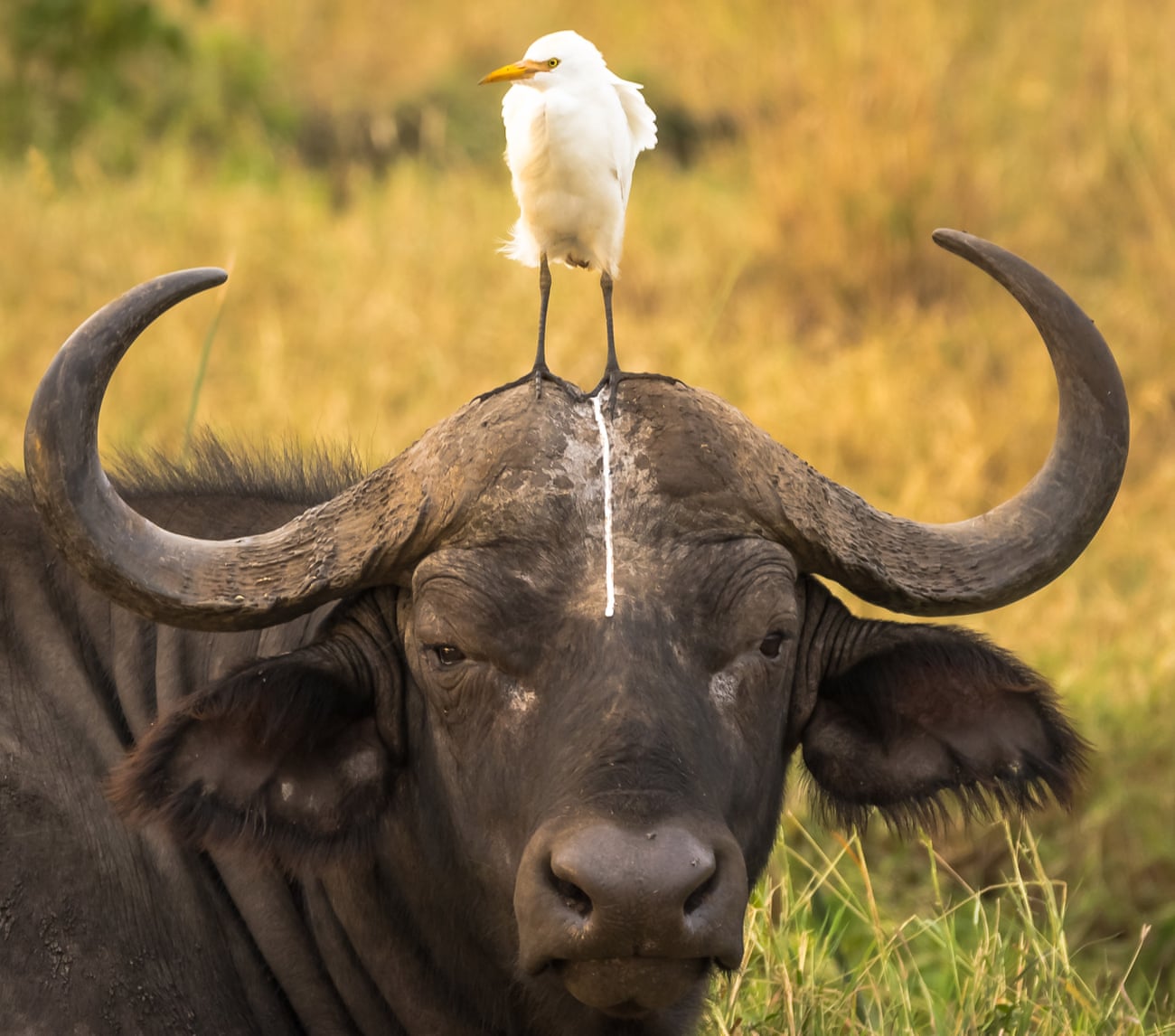
Station Squabble, Sam Rowley, 2016
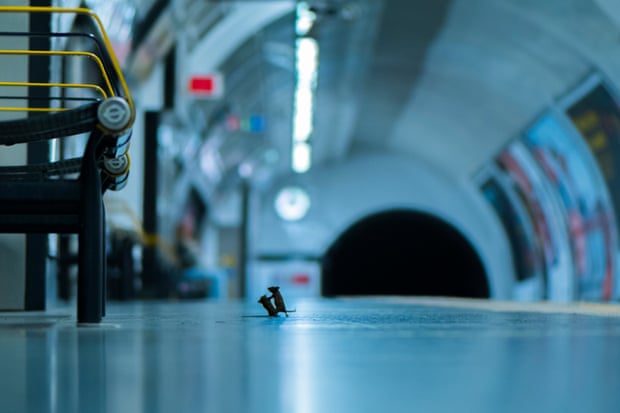
Slap, Troy Mayne, 2007
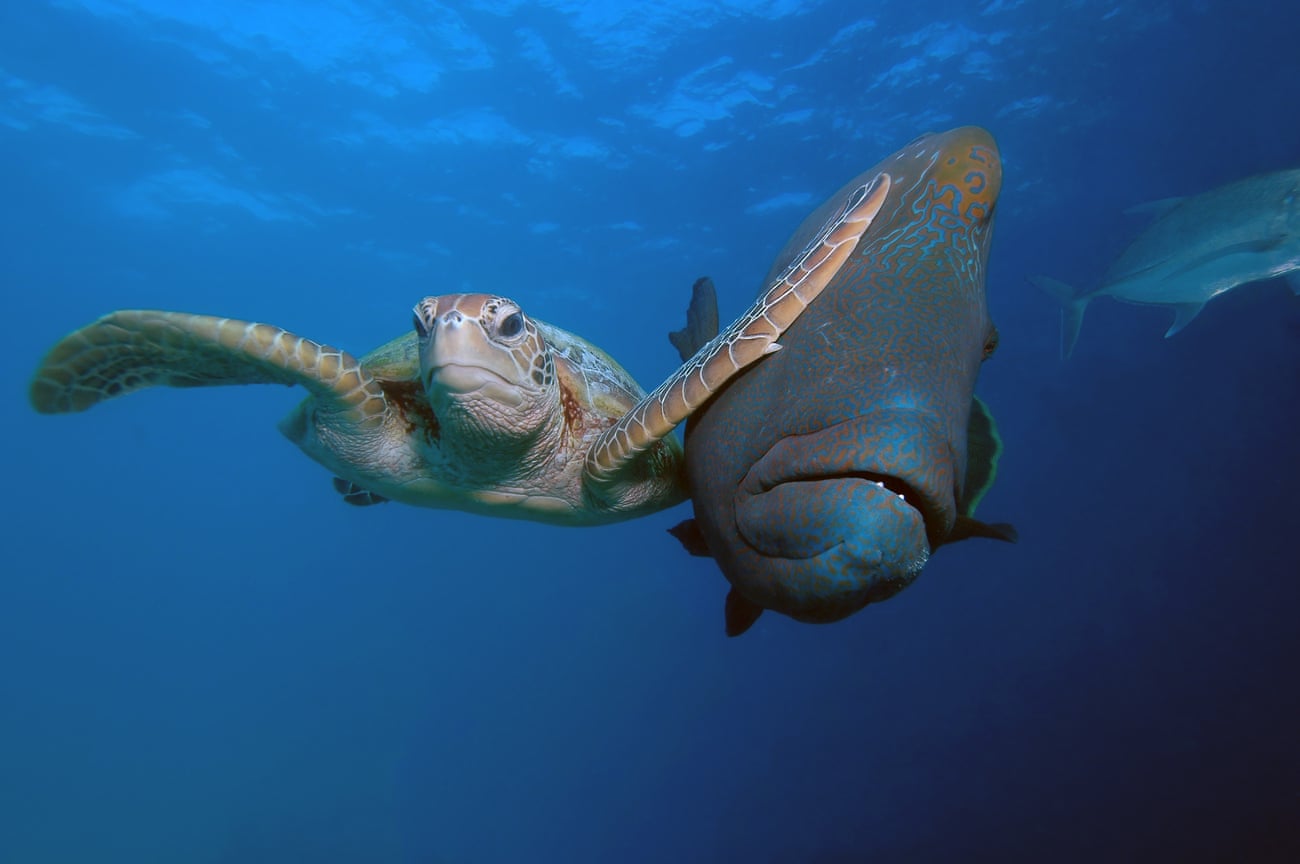
Sheepish Smile, Charlie Mackinnon, 2014
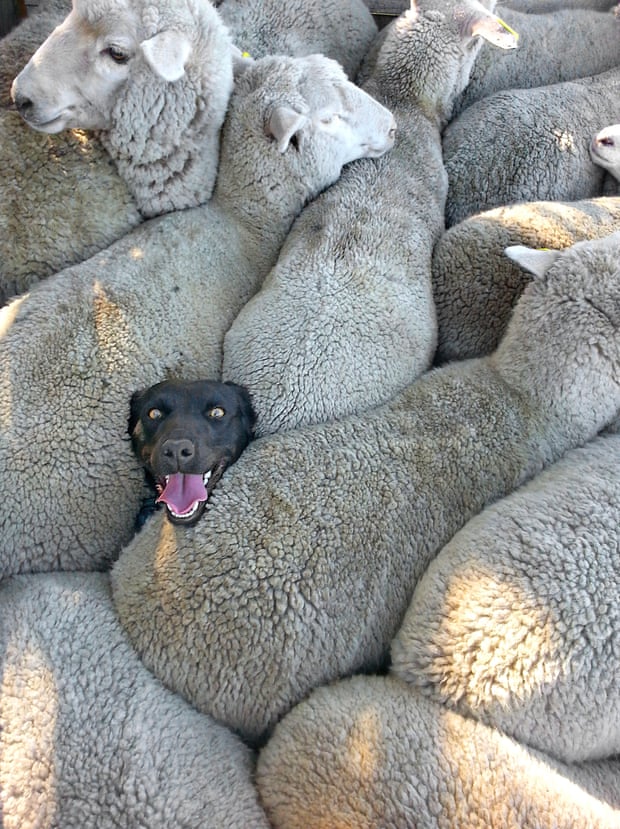
Air Guitar Roo, Jason Moore, 2021
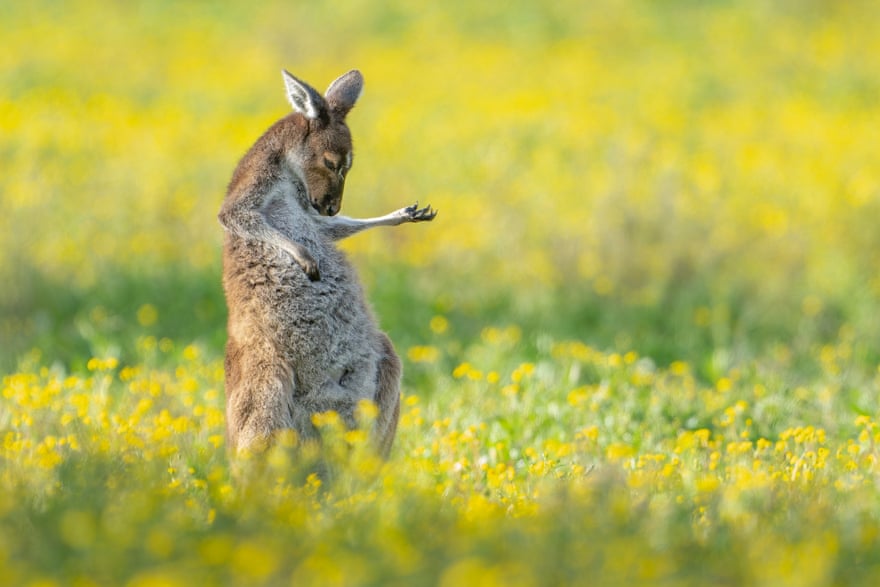
Caught in the Act, Mary McGowan, 2015
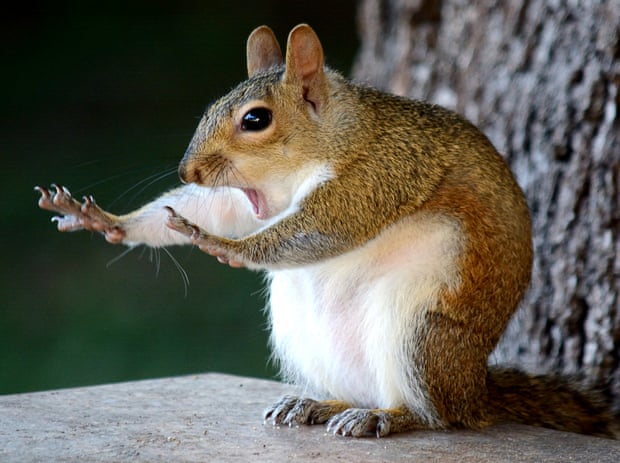
Monkey Selfie, Naruto, 2011
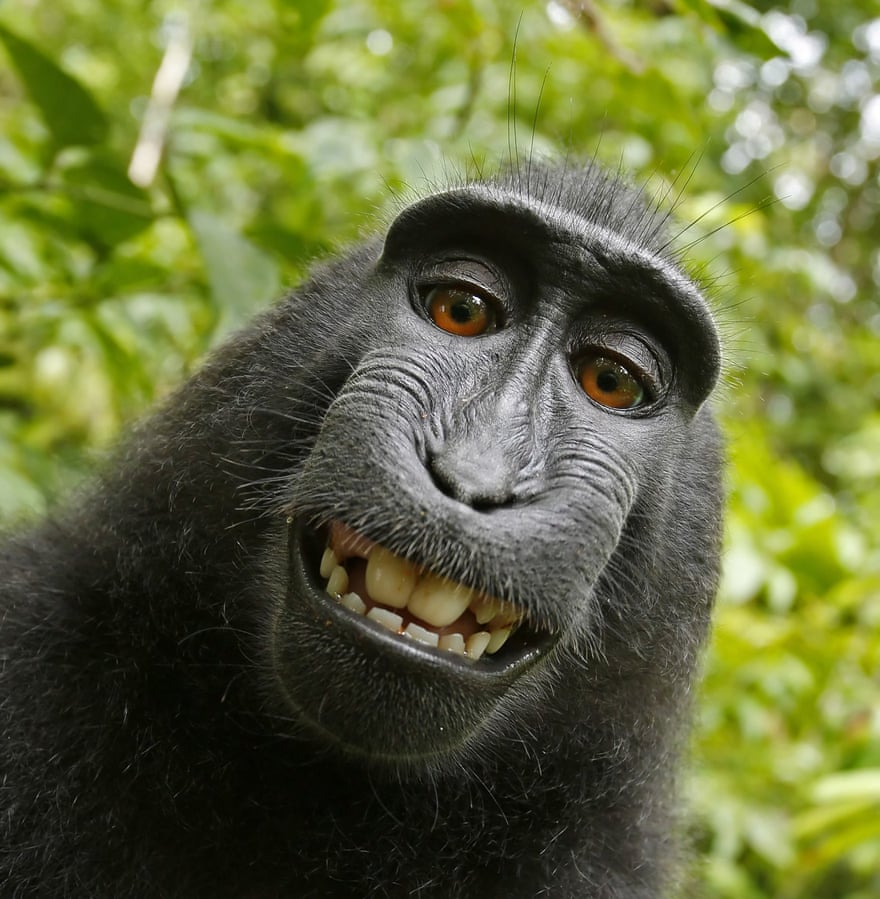
Damn! Nicolas de Vaulx, 2016
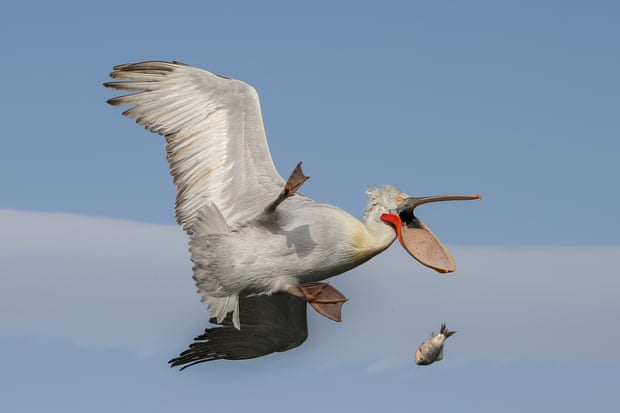
Waving Bear, Alan Vernon, 2007
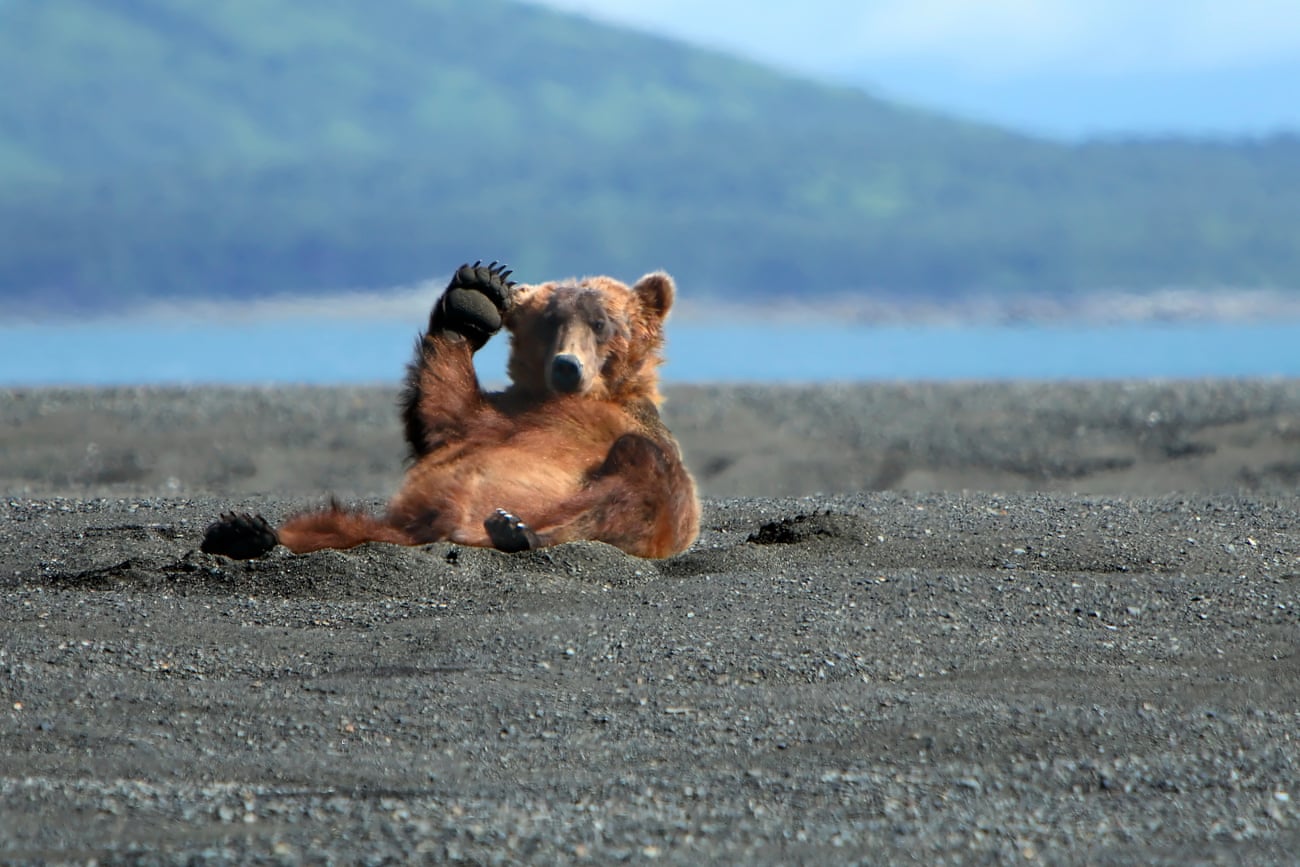
The Big Boss, Kenichi Morinaga, 2023
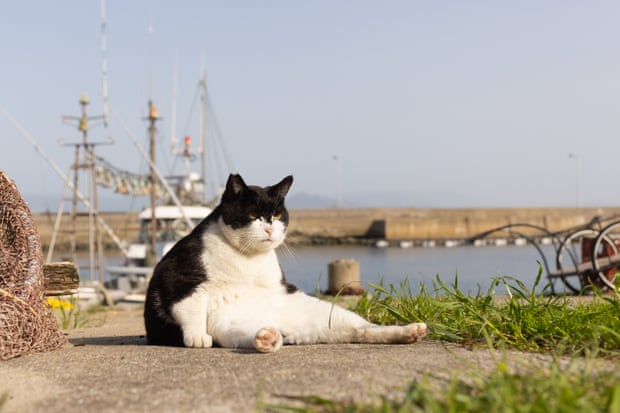
Shake, Carli Davidson, 2012
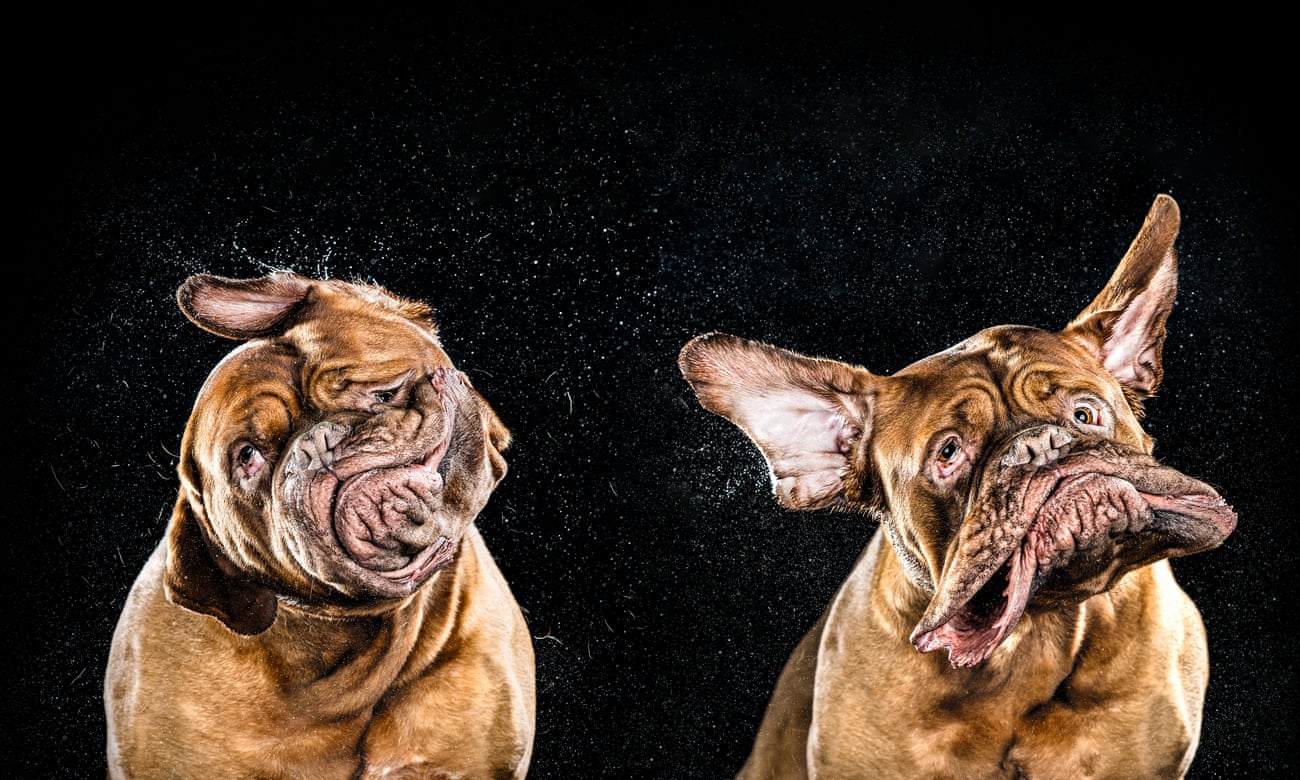
Smiley the Fish, Arturo Telle Thiemann, 2015
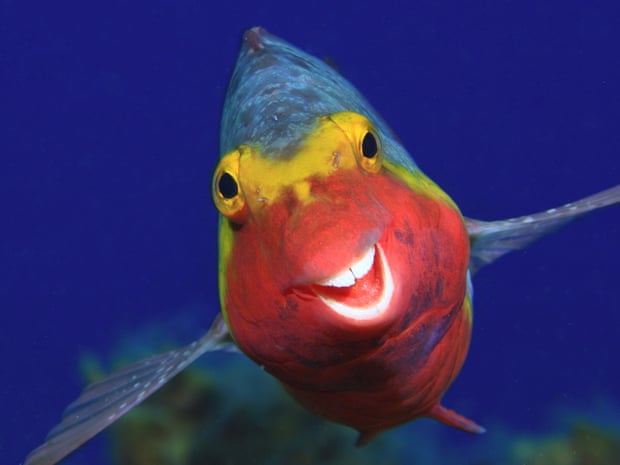
WTF?! George Cathcart, 2016
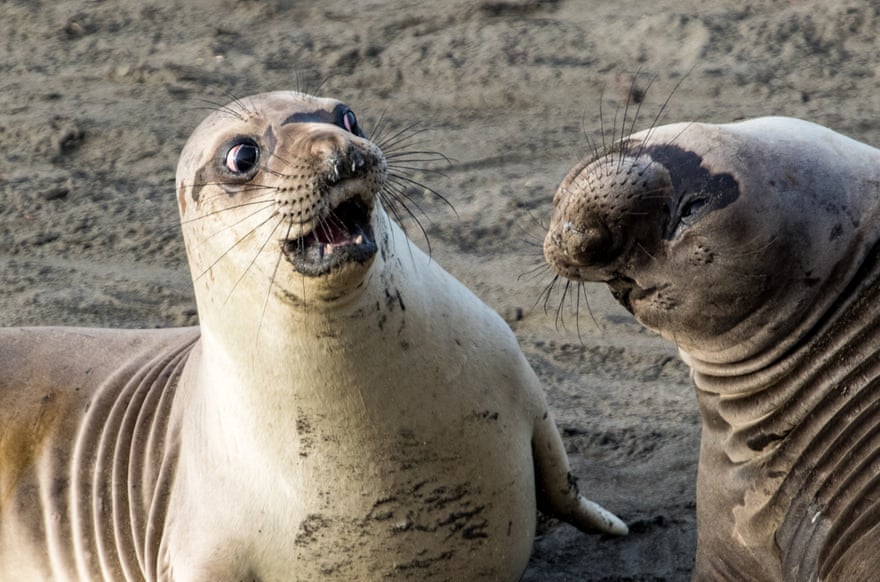
Portrait of an Arrogant Beagle, Patrick Reymer, 2018
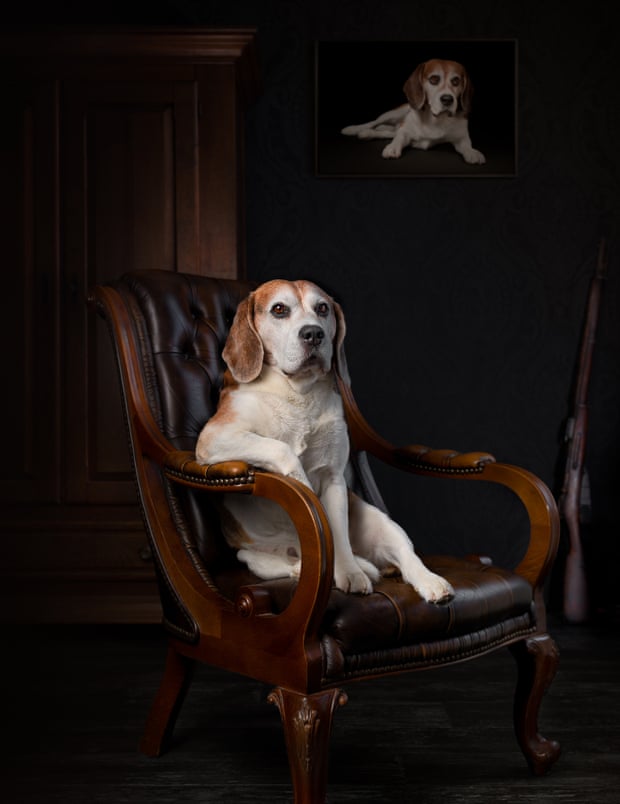
Get Off My Branch! Gurumoorthy K, 2021
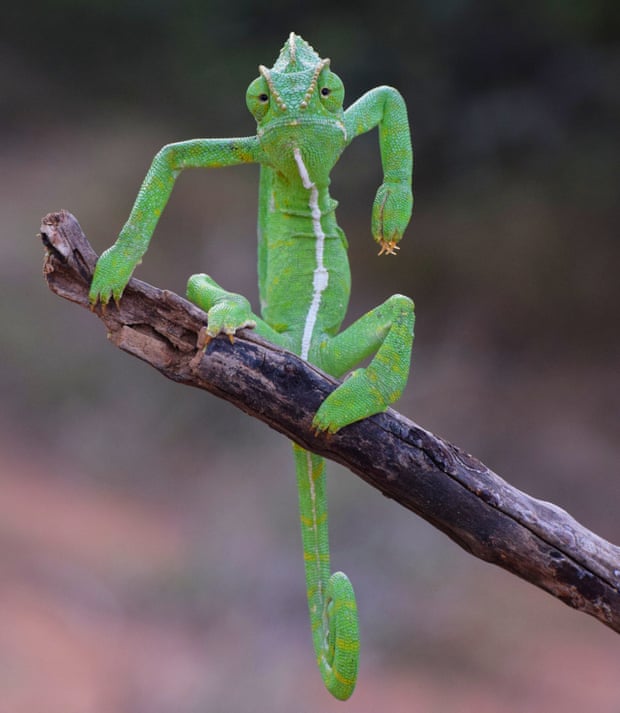
Shy Bear, Esa Ringbom, 2020
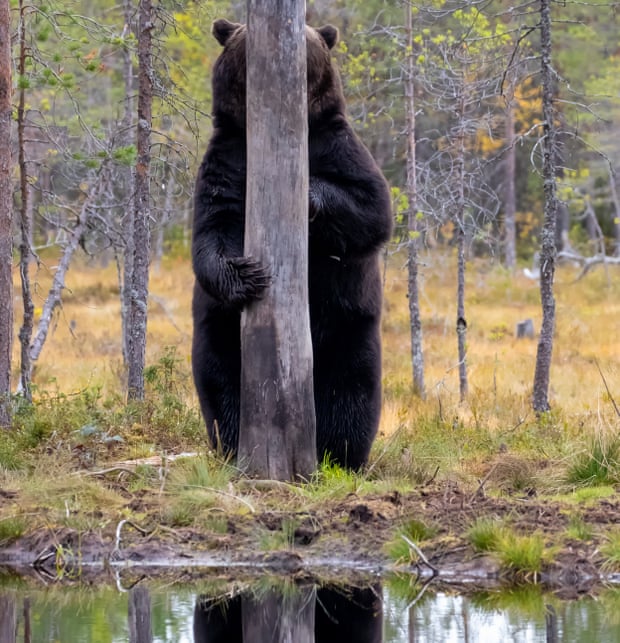
The Trunk, Suliman Alatiqi, 2022
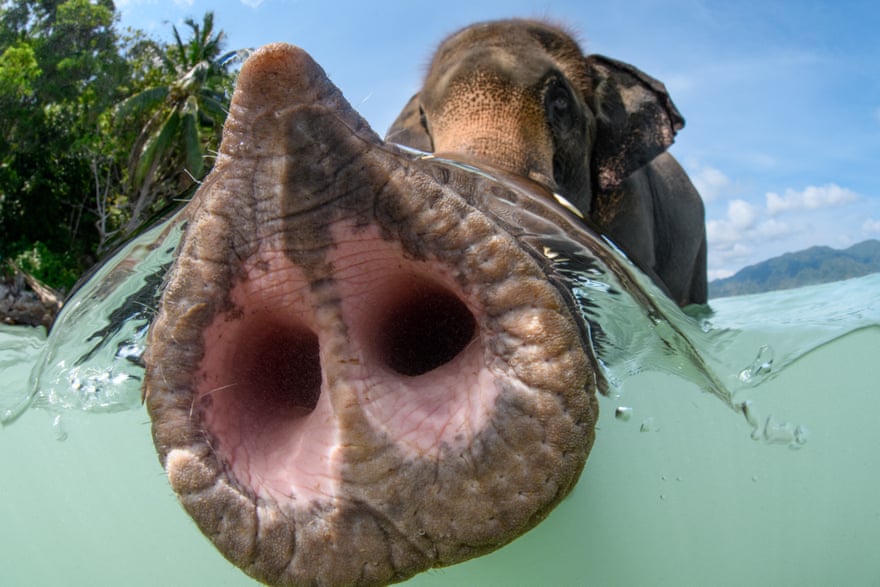
Pegasus, the Flying Horse, Jagdeep Rajput, 2010
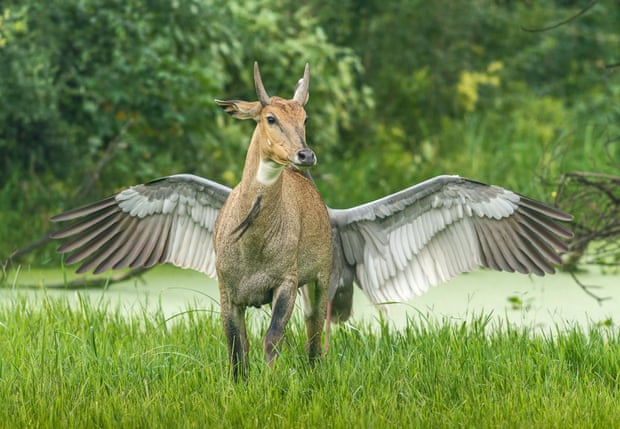
Polar Bear Cub Grabs a Ride, Daisy Gilardini, 2015